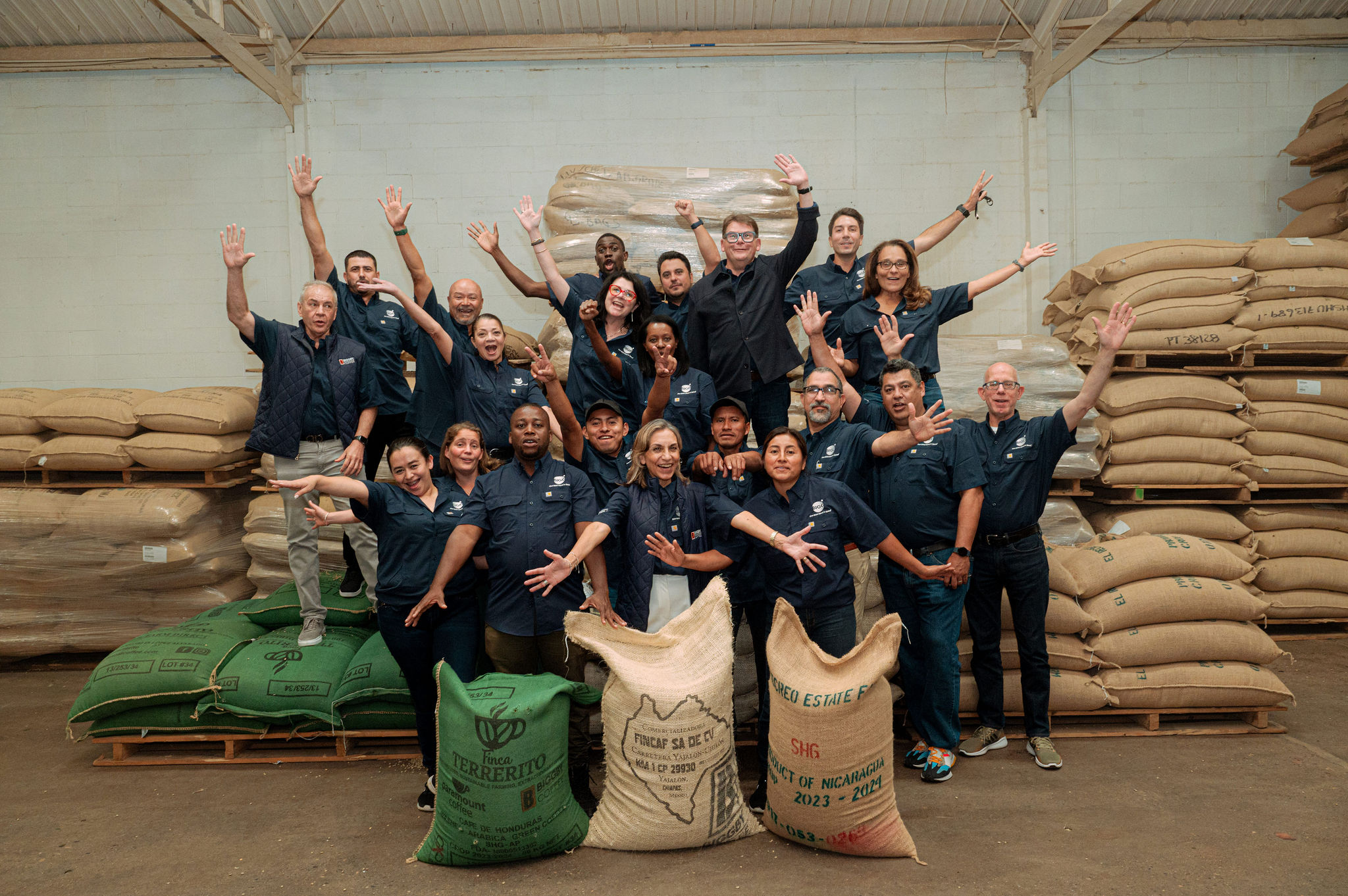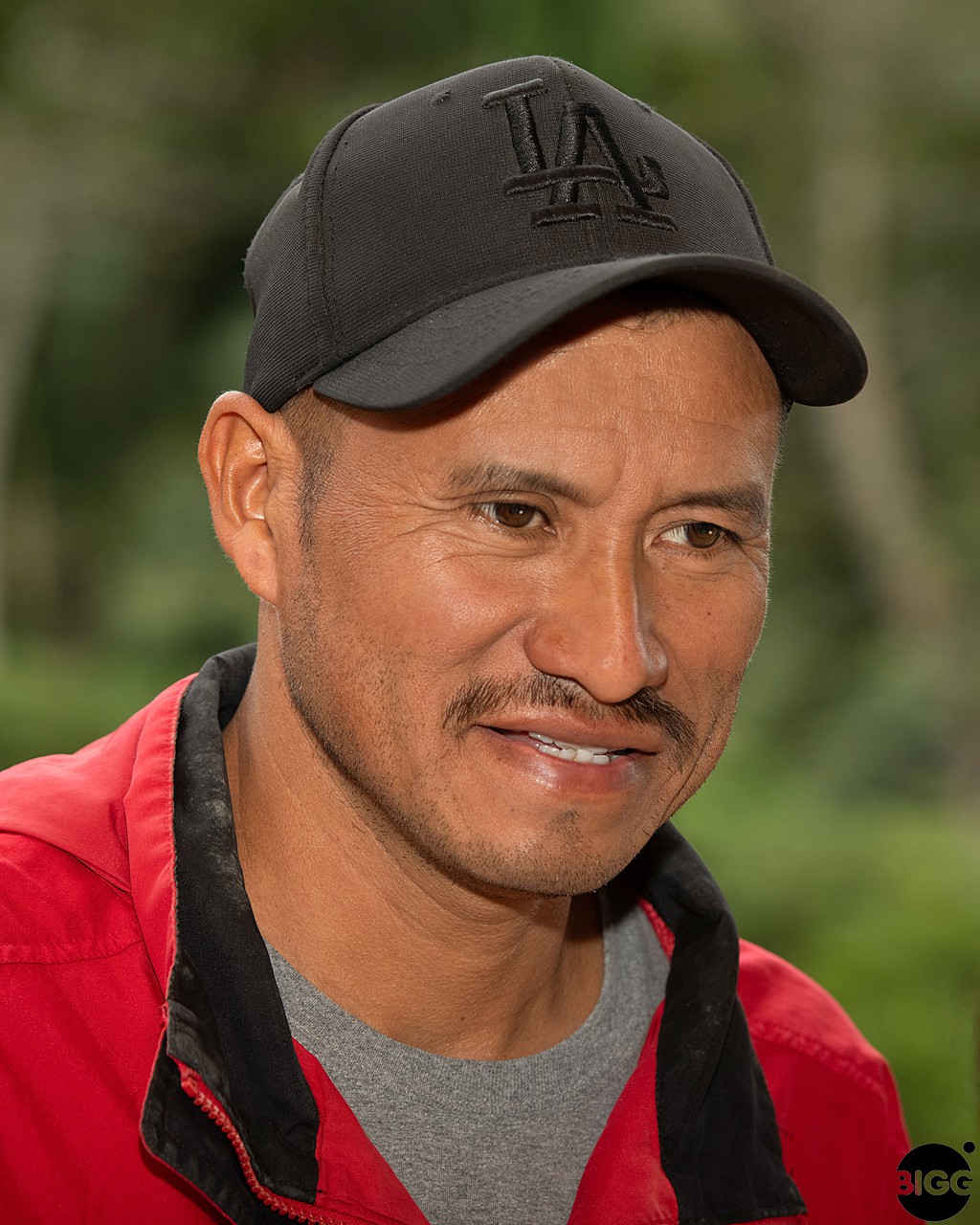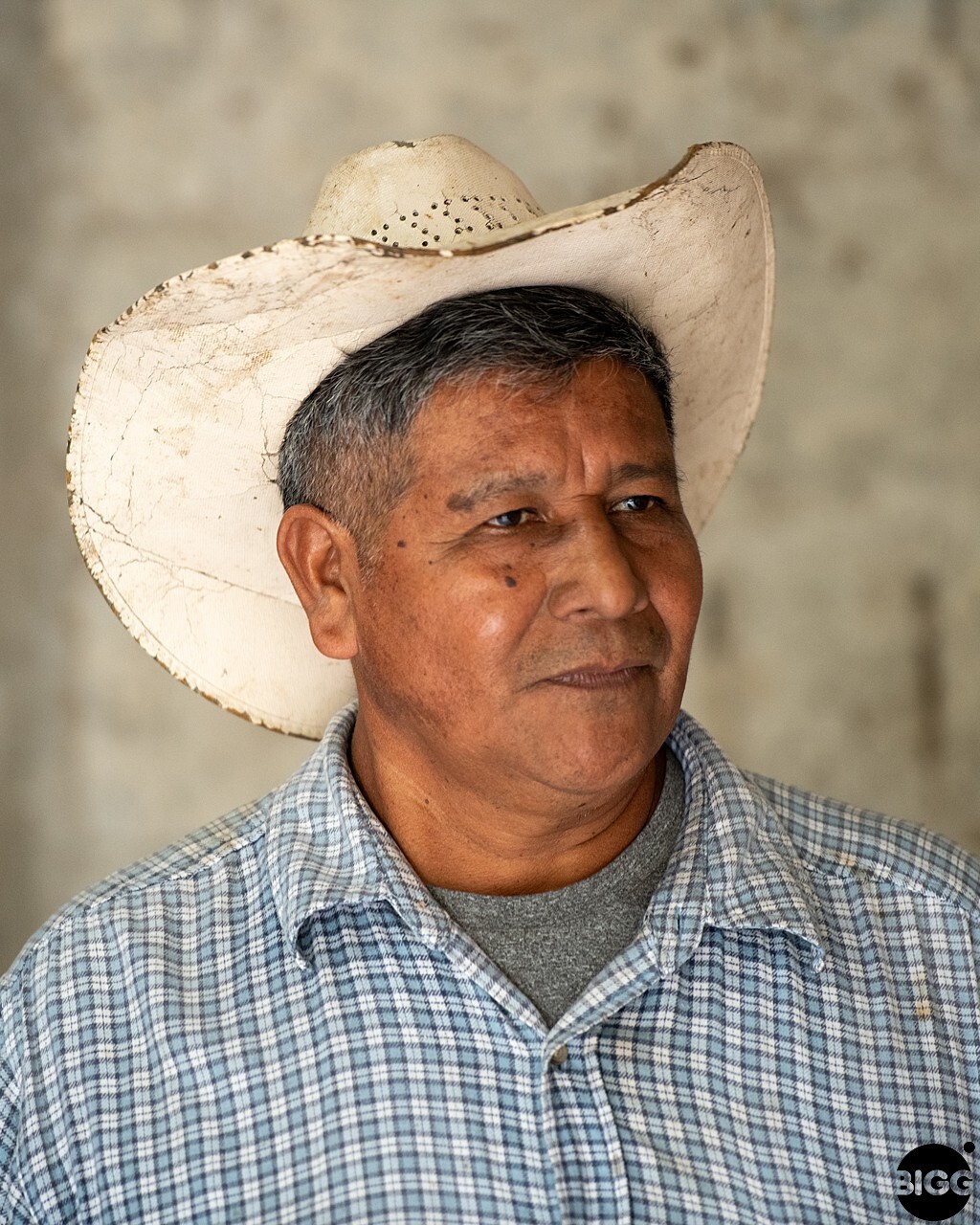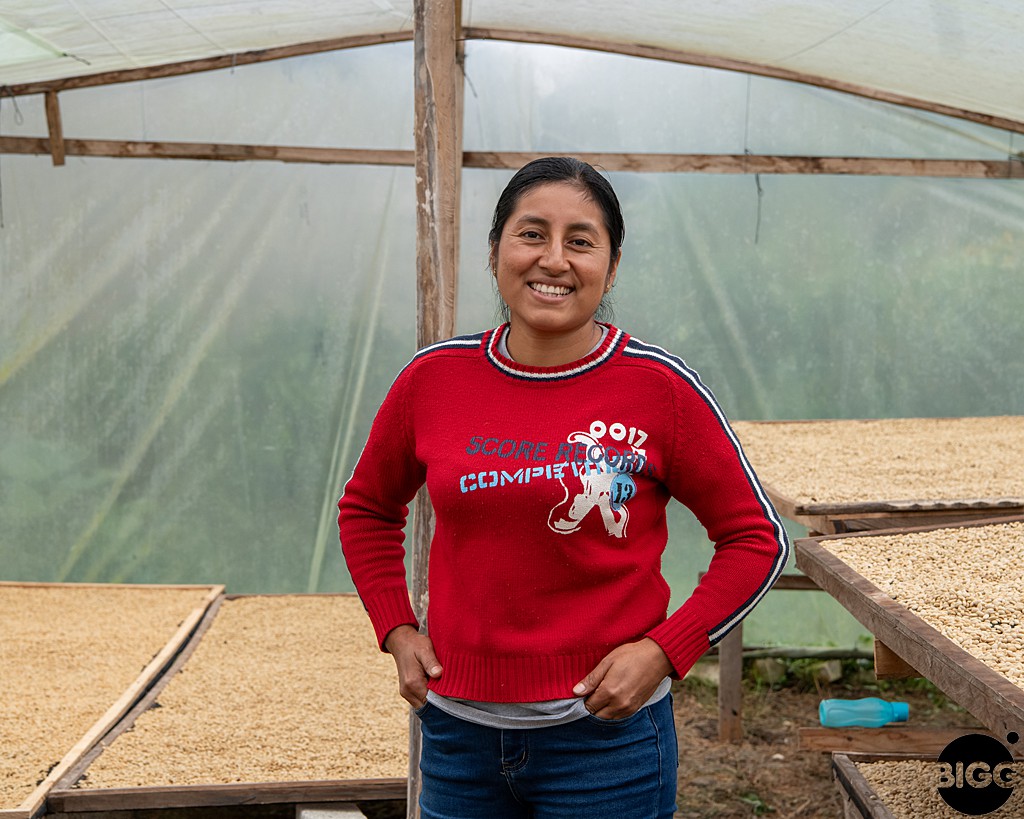In September of 2024, three micro coffee producers left their families and their farms in their remote villages to board a plane for Detroit, Michigan. They were on their way to attend the BIGGBY NATION SUMMIT, the annual gathering of more than 1,000 BIGGBY COFFEE franchisees, baristas, home office staff, and vendors. It was a trip more than two years in the making. And it was epic.

Small Producers
Salomon Demeza, Martha Vazquez and Miguel Angel Cruz (above) grow coffee in Chiapas, Mexico. They are considered to be micro producers because, like 60%, or so, of the coffee farmers in the world, their farms are each less than 12 acres.
We were first introduced to them in 2022 at Finca La Fortaleza by Pascual Castillo and Maria Esther Saut as we were finalizing the details of our Farm-Direct partnership. They, and a fourth micro producer, Pascual Hernandez, had been selected out of the roughly 2,000 small producers with whom Finca La Fortaleza works, to be a part of our Farm-Direct partnership.
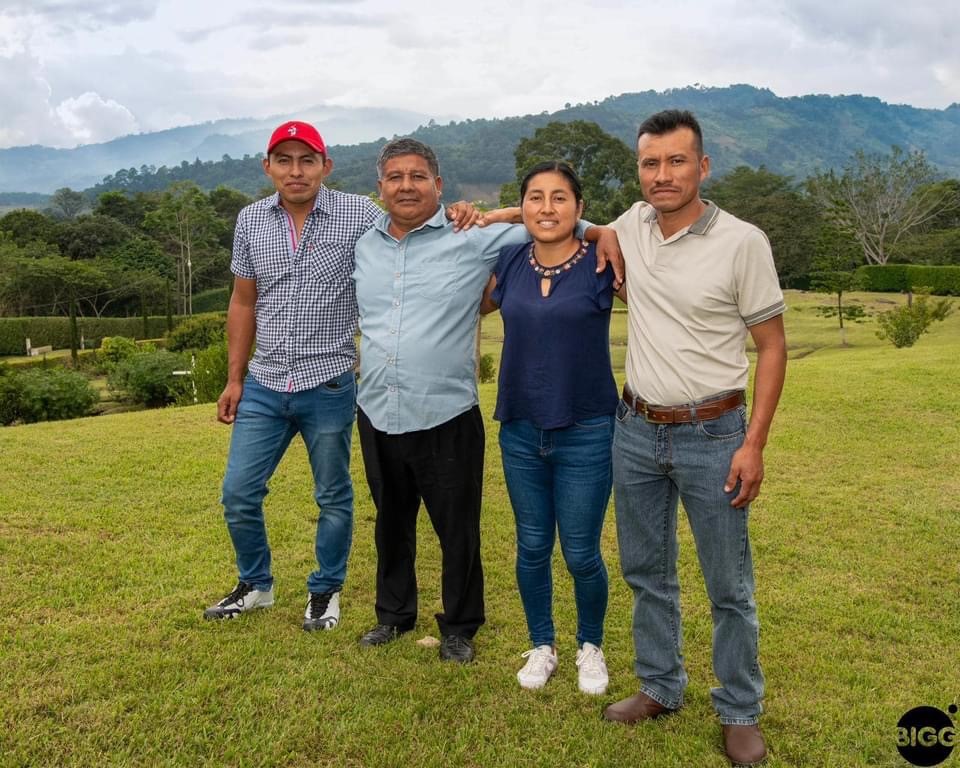
Without the help of Pascual and Maria Esther, we would never have been able to find anyone like them to partner with. They would have been too small to have ever hit our radar. But with our partnership, the four small producers and the communities they represent grow 60% of the coffee that we purchase from Finca La Fortaleza.
And, as we were working out the details, I looked at Maria Esther and said “you know, we’re going to want them to come to BNS in a few years. They’re going to need passports and visas.” And Maria Esther answered “Oh, my dear, they’re going to need so much more than that.”
Kicking the Tires
But before I tell you about what it takes to get passports and visas for coffee farmers who have lived and farmed largely off the grid their entire lives, I want to tell you about why it’s so important for us to bring our Farm-Direct partners to Michigan.
Bob and I have been to at least 100 coffee farms over the last six years. And we go multiple times a year to our Partner’s farms. You could describe our visits as intrusive. We come, we stay on the farm, we walk the fields, and we talk to the workers. We ask a gazillion questions. And then we come back a few months later and do the same thing all over again.
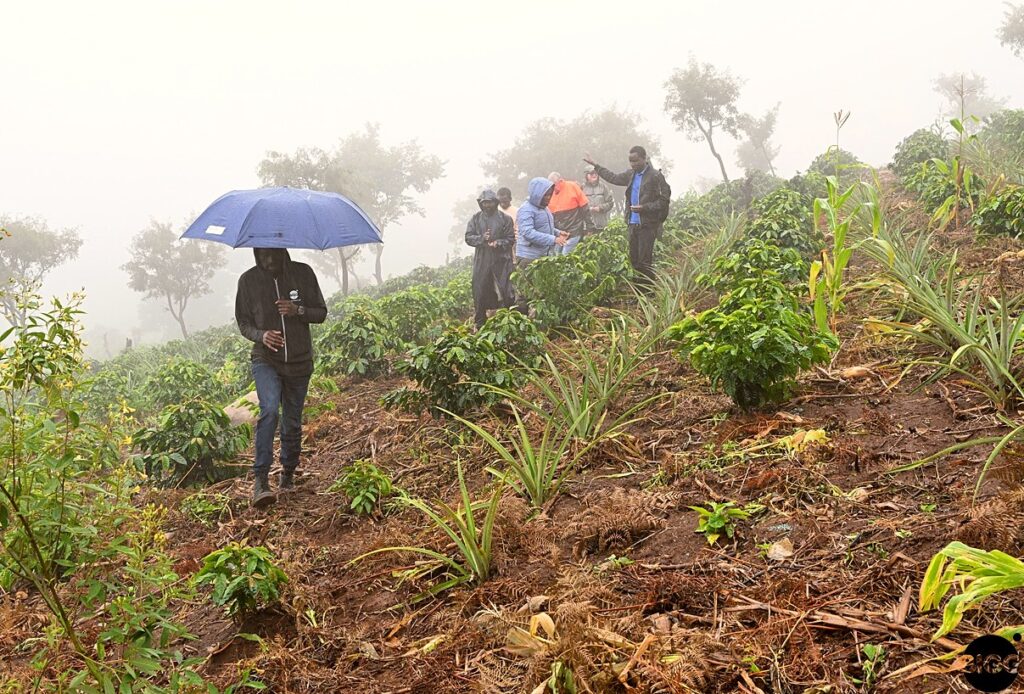
The OBIIS crew, walking the field of a small land-holder on Gorongosa Mountain in July of 2024.
This is tolerated by Farm-Direct prospects, and sometimes even welcomed, because we are the marketplace. And there is the often desperate hope that we will buy their coffee. It is, without a doubt, a relationship built on inequity. We have the power. That is the way the entire industry is set up.
But we aren’t interested in that.
The people who become our Farm-Direct partners are doing incredible work for their people, our planet, and their communities. They are truly changing the world by tackling some of our most intractable problems: poverty, climate change, and the deep social injustice that they both create.
Every day, they are swimming upstream against the currents of an industry that doesn’t care, and that exists only to extract the maximum amount of profit from people and the environment, moving wealth from the Global South to the Global North.
We support the work they do by buying their coffee at a fair, sustainable price. And they support what we are up to, which is first to make BIGGBY COFFEE 100% Farm-Direct by 2028. And then, to change the coffee industry itself.
To do that, we need partners, not vendors. We need their voices at the table. We need equity in the relationship. So, if we are going to spend all that time on their farms, kicking their tires and peeking under their hoods, it’s only fair that they get to do the same thing with us.

The Farm-Direct crew visiting a BIGGBY COFFEE cafe in New Baltimore, Michigan in September of 2024.
Full Circle
We call it Full Circle: bringing our Farm-Partners, at our expense, to Michigan to see how we do things. And to get to know the people that make up BIGGBY NATION. We also invite them to participate in the conversations and the decision-making process about what we’re doing and how we’re going to get there.
It’s powerful. And for our mid-sized Farm Partners, like Finca La Fortaleza, it’s been a game changer. But they already have a level of sophistication and access to resources that is rare among the coffee producers in the world. They are highly educated and very well-traveled. And they have all been to the United States many, many times.
For the micro producers like Martha, Miguel, Salomon and Pascual Hernandez, it is a revelation.
Before our partnership, none of them knew where their coffee went when it left their farm. Like every coffee farmer, they spend 365 days a year doing the hard labor of caring for their crop. And when the time comes to sell it, they hope they get a good price (and usually they don’t). Then it disappears down the road in the back of a pickup truck, bound for who knows where.
We were inviting them to see exactly where their coffee goes. And to watch it being served to customers in a BIGGBY COFFEE shop. And to see the joy that it brings to millions of our customers.
Now, that’s Full Circle. And as far as we know, we’re the only ones that do it.

With Pascual Hernandez and his wife, Juanita (far right) at a visit to his farm in Chiapas.
Passports
But first, before you can get them to Michigan, you have to get them passports and visas. And that can be very complicated in a remote place like Chiapas, Mexico.
Part of that complication stems from the tangled history of Chiapas, itself. The poorest state in Mexico, with about 75% of people living below the poverty line, Chiapas is home to a large indigenous population, descended from the Mayans.
The long-simmering tension between the Mexican Government and the indigenous population erupted into violence during the Zapatista uprising in 1994. And although there is peace between the two groups today, there is also, often, a deep level of suspicion on both sides.
Many people born in the rural mountain communities have no official documentation. No birth certificates, no national ID cards, nothing. And recreating that paper trail takes a Herculean effort and a belief in miracles.
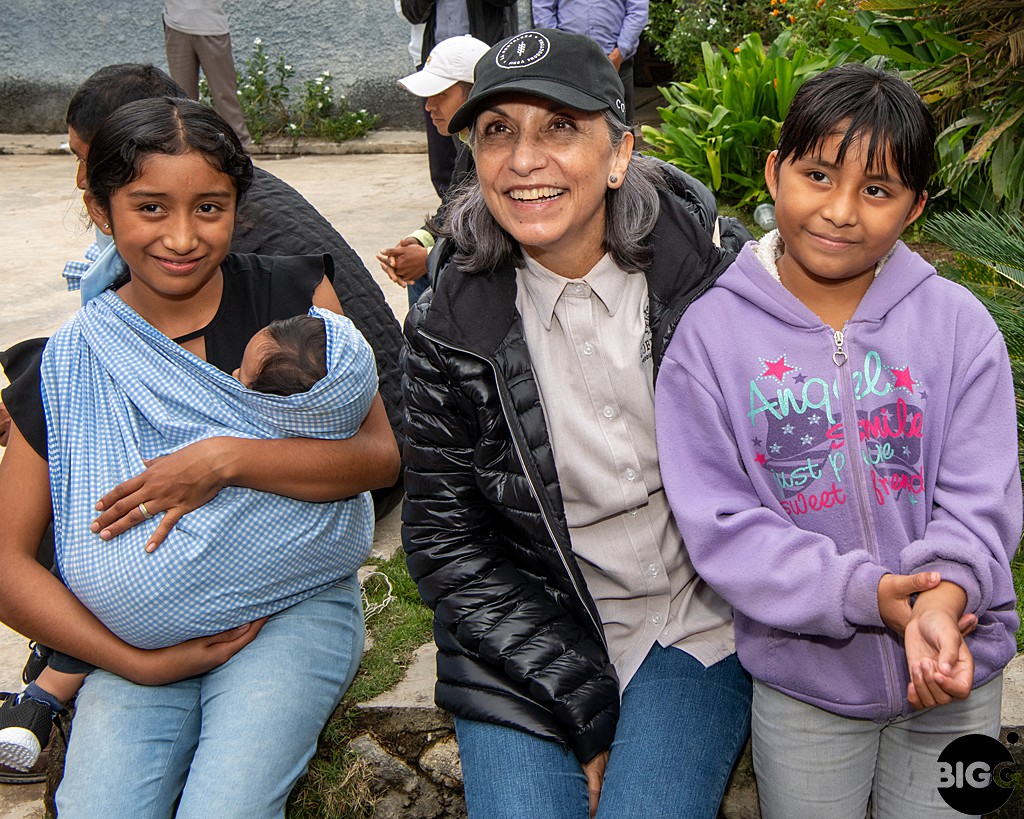
Maria Esther Saut (center)
Maria Esther, Miracle Worker
Maria Esther was up for the challenge.
For the last two years, she has spent countless hours researching, taking the small producers to government offices all over the state, and talking to every official who would listen about how to get the job done.
For Miguel, the task was easy. He already had a passport, and had, in fact been to the United States before, working in the agricultural sector with an H-2A Visa.
But for Martha, Salomon, and especially Pascual Herandez, the task was much more complicated. In fact, Pascual was never able to satisfy the Mexican government officials that he was a citizen worthy of a passport. Even though he has been growing coffee all his adult life. Even after multiple attempts, complying with every request the officials made, they refused to issue him a passport.
It was heartbreaking. And so deeply disappointing. For Miguel, Martha and Salomon, though, getting their passports was only the first hurdle.
Next, they had to apply for a US Travel Visa. And the wait to even get an appointment was longer than a year, which would have come too late to attend the Summit.
Not one to be discouraged, Maria Esther kept checking the US Embassy’s website daily. And at long last, was able to secure an appointment in time. With invitation letters from us, and attestations that Finca La Fortaleza would assure that they would not become a burden to the United States, they were finally, at very long last, granted their travel Visas.
And they were ready to head to Michigan.
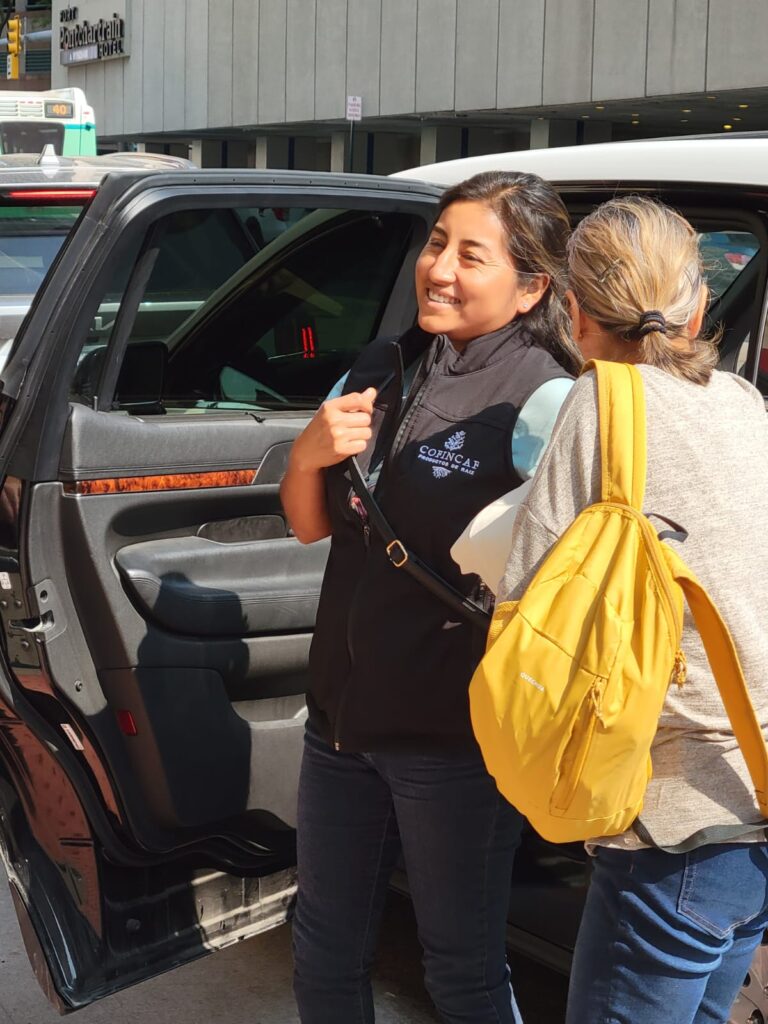
Martha and Maria Esther, arriving at the Detroit Foundation Hotel.
The Agenda
Our Farm-Direct partners descended upon Detroit on a picture-perfect Friday afternoon in September. We were ready. We had an action-packed itinerary in store for them that included store visits, a Tiger’s Baseball game (Fiesta Night, no less!), dancing to Motown on the Detroit Princess, dinners with BIGGBY COFFEE Franchisees and senior leadership and, of course, the SUMMIT itself.
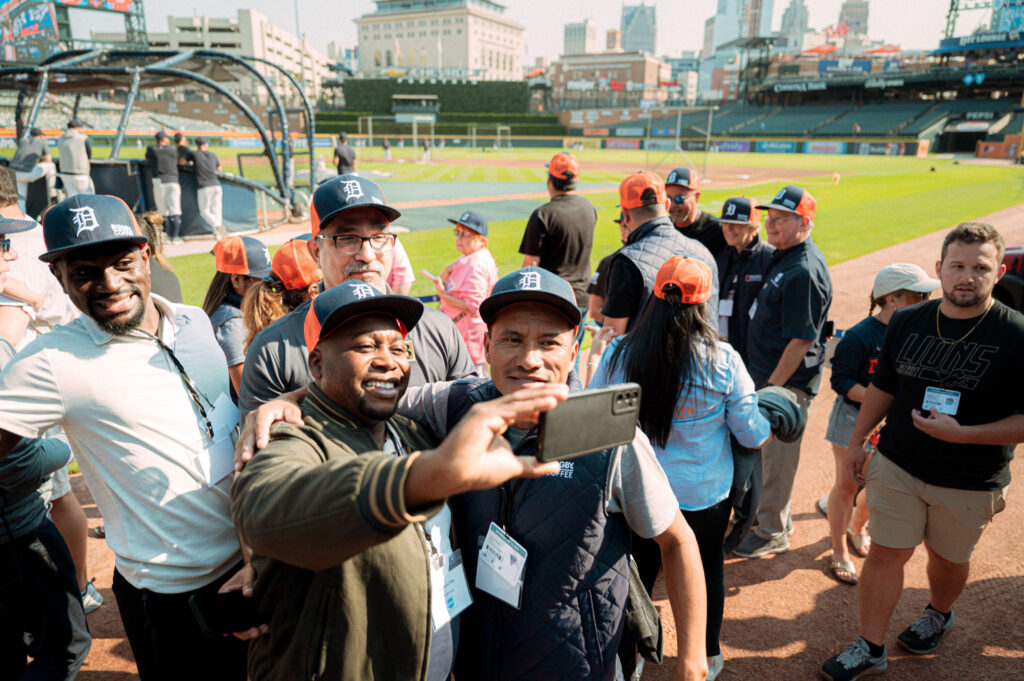
Farm-Direct partners on the field at Tiger’s Stadium.
Even for people who have been there before, attending the two days of the BIGGBY NATION SUMMIT can feel like drinking out of a firehose. There are nonstop big room presentations, and breakout sessions, and roundtable events, culminating in a star-studded CELEBRATION DINNER.
Our Farm-Partners presented two Standing Room Only breakout sessions on the life cycle of coffee, where they had the chance to lay out the painstaking work it takes to get the coffee cherry all the way from their farms to a BIGGBY café.
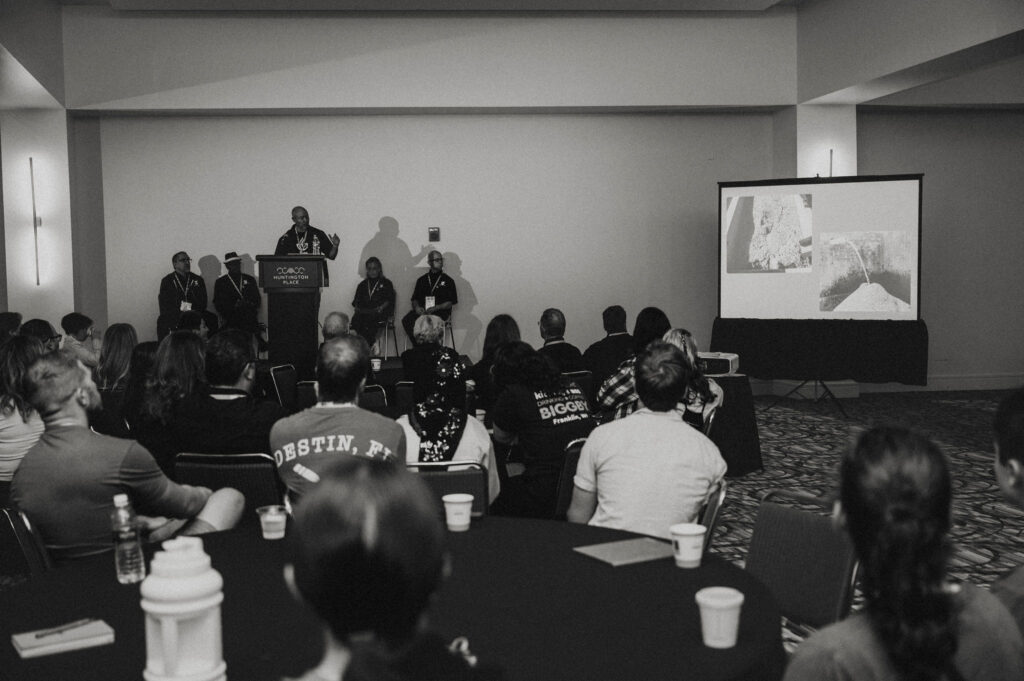
Al Lopez, our partner from Finca Terrerito in Honduras, explaining part of the life-cycle of coffee.
The small producers were featured at two breakout sessions, where they were asked to tell their stories, in their own words, to Franchisees and baristas alike.
Many were particularly interested in Martha’s story. What does it take to be a woman in leadership in a male dominated culture? Martha told us of her struggles and her triumphs, and all the things she still wants to achieve for her community. Plus, In addition to being a bad-ass coffee farmer, and a community leader, she still has to do all of the cooking and cleaning at home. It was something that really resonated with our audience, particularly the women.
Rockstars
To encourage BIGGBY NATION to actively engage with our partners, we had produced both a special edition collectible calendar and an autograph book with all of our producer’s pictures in it. The producers were all treated like rock stars, with hundreds of people asking them for their autographs.
They could barely walk down the hallway without someone stopping them to thank them for the work they do and shaking their hands.
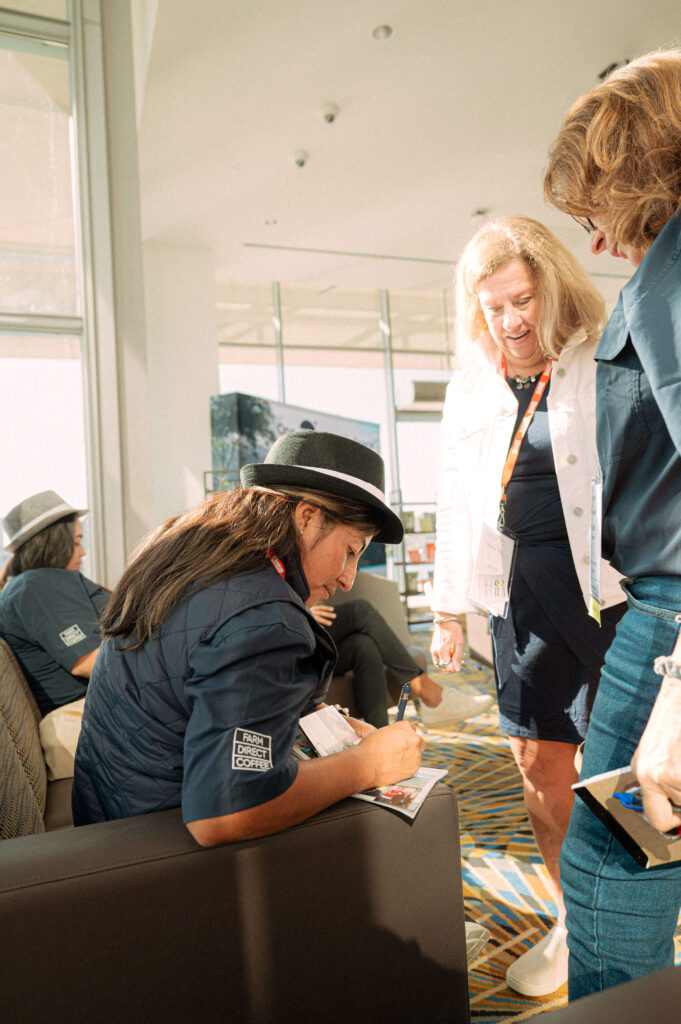
But perhaps the most visceral, soul-shaking moment came during Bob and my big stage presentation on behalf of OBIIS. We were there to report on our progress for the year. And we debuted three of our new docu-series episodes called FIELD NOTES, highlighting each of the small producer’s stories.
At the end of the presentation, all 1000+ people in the room leapt to their feet, and erupted in thunderous applause. All to thank our Farm-Direct partners for their tireless work, and their excellent coffee.
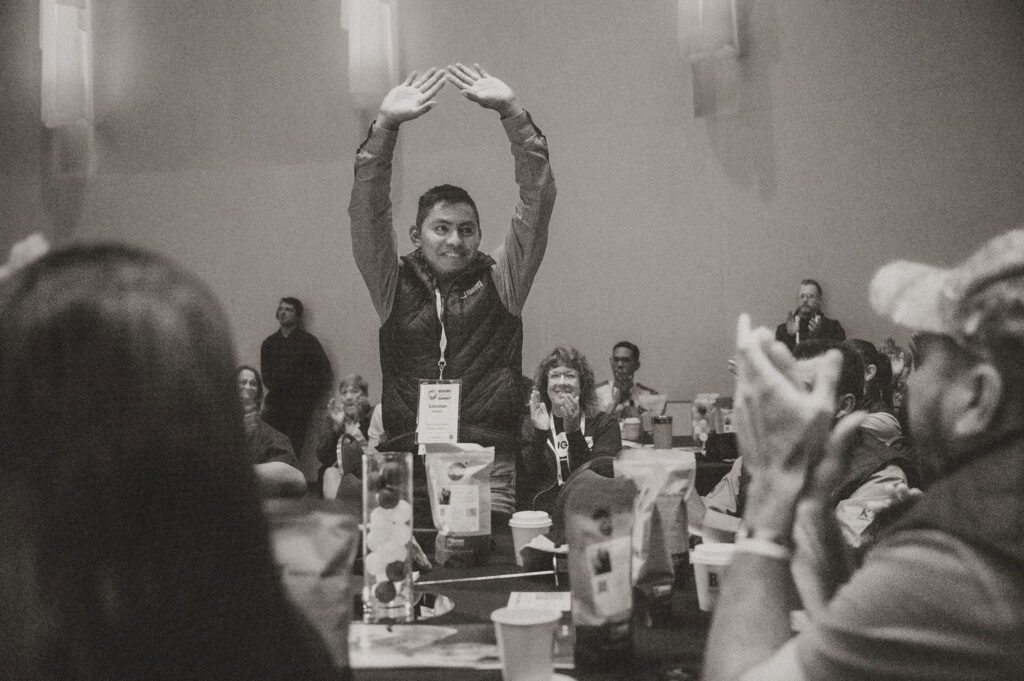
Salomon, after the debut of the Field Notes docuseries episode about his farm and his dreams at the big room presentation.
There is something in the coffee industry that Bob and I call the black curtain. It is this impenetrable veil between the producer and the end user that the industry has constructed to keep coffee consumers ignorant of the conditions on the ground in the places where their beloved coffee is grown.
As a result, coffee producers, their struggles and their stories, are invisible to most of us. But for Miguel, Salomon and Martha, and our Farm-Direct partners, they had a chance to be seen and heard by the people at the end of the value chain. It is something that I guarantee you, they never imagined to be possible.
There wasn’t a dry eye in the place.

